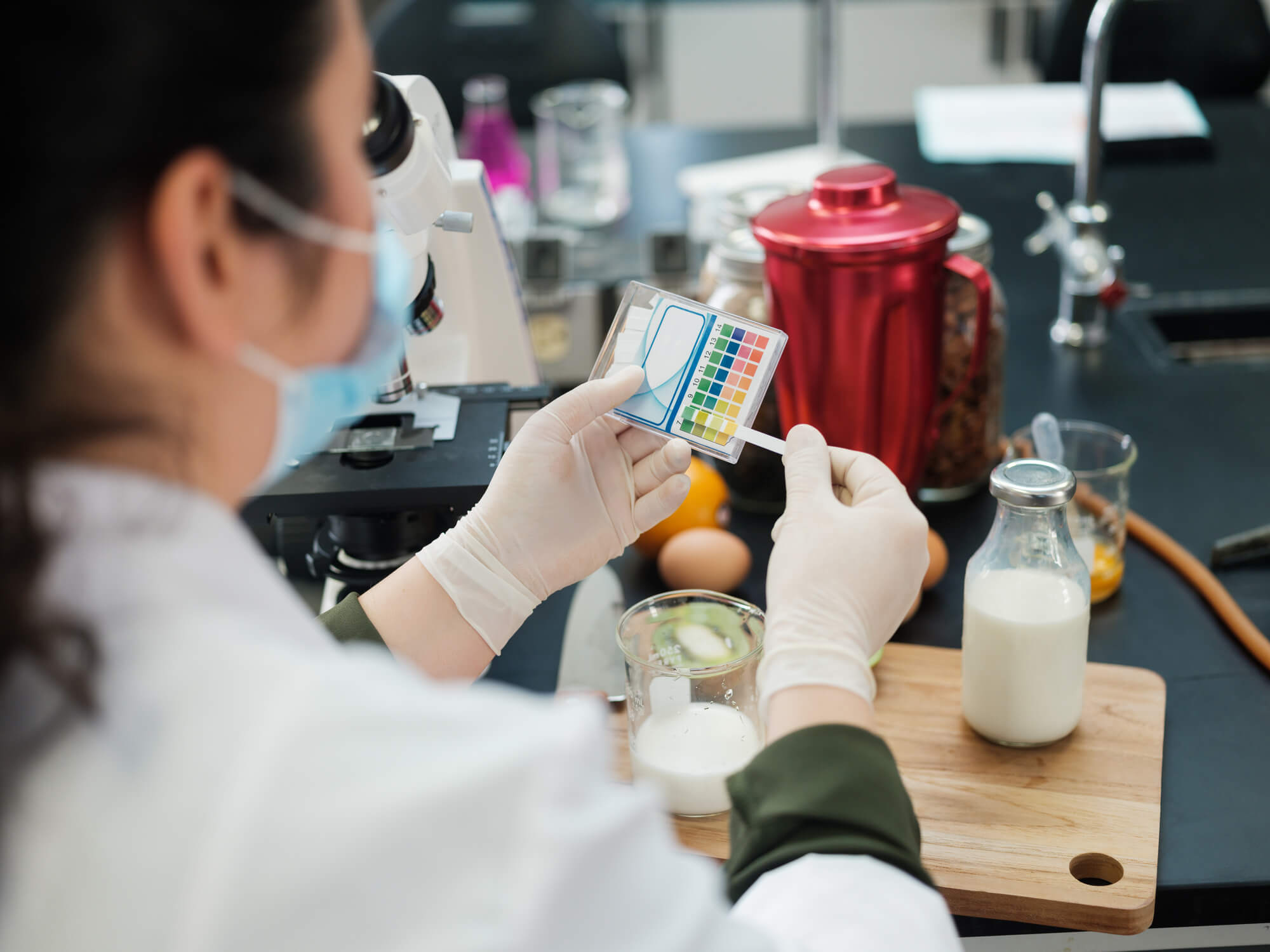Chemical food analysis II
Overall Course Objectives
The aim of the course is to give students a wider understanding of food related analytical chemistry. The course is based on knowledge from Chemical Analysis I and focus on qualitative and quantitative chromatographic analysis. Quality assurance principles with relevant statistics for analytical chemistry is included to support the continued development of critical evaluation of analytical data.
Learning Objectives
- Select and explain principles for sample preparation in chemical analysis
- Explain chromatographic separation principles on a food analysis
- Evaluate advantages and disadvantages in the use of gas chromatography (GC), liquid chromatography (LC), Inductive coupled plasma (ICP) including mass spectromety (MS), Ultraviolet (UV), fluorescence (FLD) and similar detection principles
- Summarize principles and essential parts of GC, LC, ICP and MS instruments
- Apply quantitative analytical principles, including matematical expressions and evaluate challenges for calibration of a chemical food analysis
- Plan, perform and report and experimental analytical design for a given chemical food analysis
- Evaluate analytical data with relevant statistics from a quality assurance perspective
- Present an oral summary using analytical chemistry of an analytical challenge by applying relevant theory and appropriate terminology
Course Content
For both quality, safety and health decisions in the food industry are based on analytical data. These data might hold important information on both process information, nutrition or quality of medicin. This course introduces the students to analytical terminology to aid in the understanding of analytical methods and the produced data. Topics includes sample preparation, quantitative and qualitative chemical analysis and quality assurrance of data. Students should after the course be able to evaluate extraction principles, liquid and gas chromatography in combination with detection principles based on mass spectrometry and methods applied in the food industry.
At the same time students, who have followed the course will be able to present and conclude on analytical challenges.
We use lectures, groupwork, exercises and actual cases during our teaching sessions. Statistical data handling and evaluation of uncertainties is part of the course.
Teaching Method
Lectures, group exercises, single laboratory exercises, written reporting and oral presentations in groups
Faculty
Remarks
We aim for at least one day with hands-on experiments in the laboratory
Limited number of seats
Minimum: 10, Maximum: 40.
Please be aware that this course has a minimum requirement for the number of participants needed, in order for it to be held. If these requirements are not met, then the course will not be held. Furthermore, there is a limited number of seats available. If there are too many applicants, a pool will be created for the remainder of the qualified applicants, and they will be selected at random. You will be informed 8 days before the start of the course, whether you have been allocated a spot.



